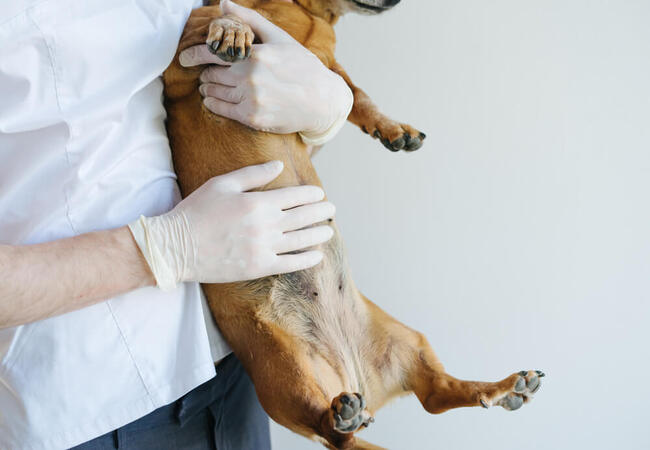Dog Gas Problems 2025: 6 Vet-Explained Causes & Fixes 💨🐕

In this article
💨 6 Surprising Causes of Gas in Dogs (2025 Guide) 🐶
By Dr Duncan Houston BVSc
Flatulence in dogs can be more than just a smelly inconvenience; it may indicate underlying health or dietary issues. Understanding the common causes can help you manage and reduce your dog's gas effectively.
1. 🐕 Swallowed Air
Overview: Dogs that eat too quickly can swallow excess air, which leads to increased gas production.
Tips:
- Use slow-feed bowls to encourage slower eating.
- Place a large, clean object in the food bowl to slow down consumption.
- Feed smaller, more frequent meals to reduce gulping.
2. 🥩 High-Protein Diets
Overview: Diets rich in red meat can lead to foul-smelling gas due to sulfur content.
Tips:
- Opt for diets with moderate protein levels (around 25% for dogs).
- Choose alternative protein sources like chicken or fish.
- Consult your vet for dietary recommendations tailored to your dog's needs.
3. 🥛 Lactose Intolerance
Overview: Many adult dogs are lactose intolerant, and consuming dairy products can cause gas and digestive upset.
Tips:
- Avoid giving your dog milk, cheese, or other dairy products.
- Check pet food labels for hidden dairy ingredients.
- Introduce lactose-free treats if you wish to provide dairy-like snacks.
4. 🍽️ Dietary Indiscretion
Overview: Dogs with sensitive stomachs may react to sudden changes in diet or consuming inappropriate foods.
Tips:
- Maintain a consistent diet and avoid sudden changes.
- Refrain from feeding table scraps or human food.
- Monitor your dog to prevent scavenging during walks.
5. 🧬 Gastrointestinal Diseases
Overview: Certain health conditions can cause excessive gas in dogs.
Common Conditions:
- Exocrine pancreatic insufficiency (EPI)
- Inflammatory bowel disease (IBD)
- Intestinal parasites
- Gastrointestinal infections
Tips:
- Consult your veterinarian if gas is accompanied by weight loss, vomiting, or diarrhea.
- Regular health check-ups can help detect and manage these conditions early.
6. 🌾 High-Fiber Diets
Overview: Diets high in certain fibers can lead to increased fermentation in the gut, resulting in gas.
Tips:
- Limit foods high in fermentable fibers like beans, soy, and certain grains.
- Introduce new foods gradually to monitor tolerance.
- Consult your vet for a balanced diet plan suitable for your dog's digestive health.
📱 Enhance Your Dog's Digestive Health with Technology
Modern tools can assist in managing your dog's digestive health effectively:
- Ask A Vet App: Access expert veterinary advice and schedule consultations conveniently.
- Woopf: Utilize training resources tailored to your dog's breed and behavior.
- Purrz: Monitor your dog's activity levels and set reminders for health check-ups and medication schedules.
🎯 Conclusion
Understanding the causes of gas in dogs is the first step toward ensuring their comfort and health. By monitoring their diet, eating habits, and overall health, you can minimize flatulence and keep your furry friend happy.
For personalized guidance and support, visit AskAVet.com and download the Ask A Vet app today! 🐾📲






